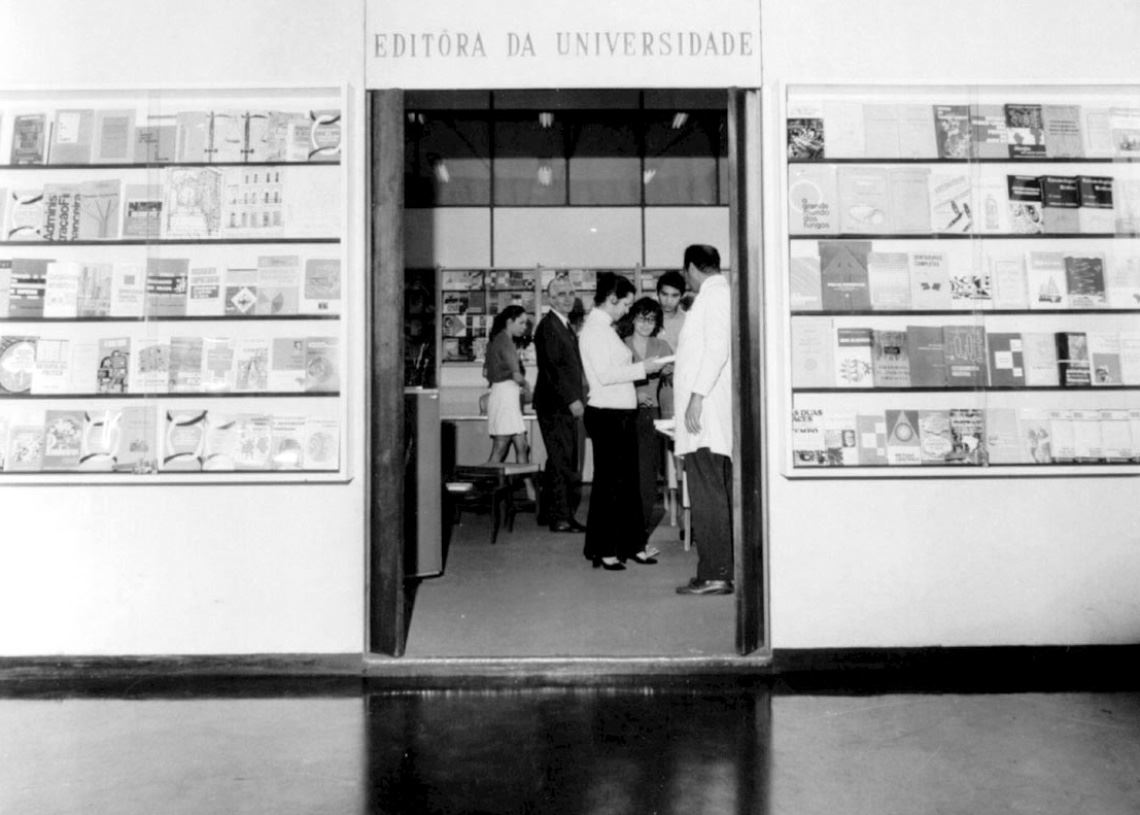The first university presses—Cambridge and Oxford, in the UK—were created in the sixteenth century, but in Brazil they only appeared in the second half of the twentieth century, with the founding of the University of Brasília Press (UnB), in 1961—prior to the UnB university itself, which only began operating the following year—and the University of São Paulo Press (EDUSP), which completes 60 years in 2022. Both are in good health, although the general condition of the sector requires attention.
“The scientific-technical-professional [STP] market has presented the greatest decline, at a worrying rate,” says Marisa Midori Deaecto, professor in the Department of Journalism and Publishing at the School of Communications and Arts of the University of São Paulo (ECA-USP), citing numbers from the Nielsen Agency. “If we start with data on book production in this sector in 2013, the year with the greatest volume from the last decade, we can see that in 2021 the production of titles fell by half.” Midori attributes the drop, in part, to the migration of a significant portion of theoretical writings to articles in scientific journals.
In addition, Midori explains that it is common for academic books to be more expensive than the cover price, because of the high production costs involved. In this unprofitable scenario, it is noteworthy that EDUSP, with a catalog of around 2,000 titles, has closed the last two years in the black. Its president, sociologist Sergio Miceli, took the position in February that he had previously held between 1994 and 2000. “At the start of that period, the catalog was very small and sales were timid. Today, the situation is different: we generate an income from the sales and almost don’t need budget reinforcement,” says Miceli.

Jorge MarutaImage of the publishing house’s first library at USPJorge Maruta
The other two university presses from São Paulo State, UNICAMP and UNESP, are similar in size to EDUSP. UNICAMP Press, founded in 1982, has published over 1,200 works. UNESP Press has reached 1,700. Founded in 1987, it was transformed into the UNESP Publishing Foundation in 1996, after approval by the University Council.
Among the public and private university presses in Brazil, 129 are affiliated to the Brazilian Association of University Presses (ABEU), created 35 years ago and which also houses those from research centers, such as the Oswaldo Cruz Foundation (FIOCRUZ) and the Joaquim Nabuco Foundation (FUNDAJ). According to the president of ABEU, journalist Rita Virginia Argollo, professor of the State University of Santa Cruz (UESC), from Ilhéus (Bahia), the current difficulties faced by most public universities, especially the federal ones, have reached the university presses. A survey by ABEU shows that in three years there has been a reduction of more than 50% of the workforce in the sector. “The crisis highlights the need to make the activity of university presses self-sufficient, with policies that guarantee their independent economic viability,” concludes Argollo.
Republish